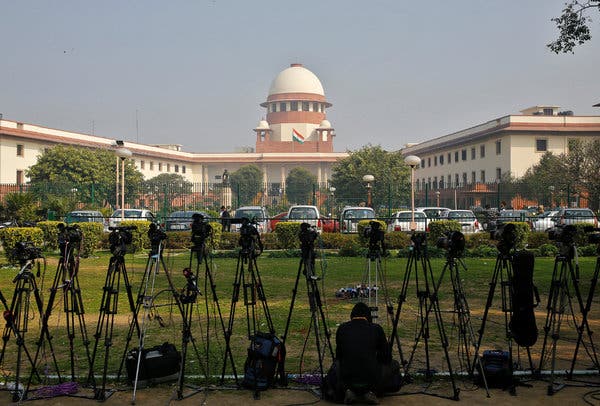Critical drugs supply must not be disrupted, EU envoy says as India bans & resumes exports
New Delhi: After India partially lifted the ban on the export of hydroxychloroquine and paracetamol, drugs that are in high demand to fight Covid-19, the European Union has said it believes global supply chains and distribution networks of such critical drugs and other items should not get disrupted.
EU’s Ambassador to India Ugo Astuto, told ThePrint: “The demand for these drugs (hydroxychloroquine and paracetamol) is increasing worldwide, and G20 leaders had agreed not to create unnecessary barriers to trade.”
The envoy continued: “We need to work together in the spirit of solidarity to keep global value chains operational for the common good, avoiding unnecessary constraints and disruption in the distribution networks. So, it is in this spirit we work, and we work with all our partners.”
However, Astuto added that countries will also have to ensure that supplies of such drugs and other medical items meet domestic needs, and domestic supply remains robust.
Need to confront economic fallout of Covid-19 too
Lauding Prime Minister Narendra Modi’s initiative to have a dialogue on Covid-19 pandemic within the G20 framework, Astuto said the coordination among the G20 countries has to be “fast and coordinated”.
Even bilaterally, he said, India and the European Union are working together to collaborate across various segments to tide over the Covid-19 crisis, especially with a focus on the worsening economic situation globally.
“EU and India start from the same proposition… The health emergency comes first, but in parallel, we also need to start to devise appropriate tools to confront the economic fallout,” Astuto said.
He added that India and the European Union also agree to the fact that a pandemic of such nature requires a global response by utilising every mechanism possible under multilateral platforms.
“We need a multilateral response and we need to strengthen cooperation and solidarity. So, we need to work together to solve this by utilising all our multilateral mechanisms that are there at our disposal, be it the United Nations, World Health Organization, International Monetary Fund and the G20,” he said.
On extending the lockdown
Due to the 21-day lockdown in India, some European firms are also facing intense challenges, Astuto said, adding the decision to extend the lockdown or not should be taken with scientific evidence guiding it.
“On the lockdown, the experience is that science-based guidance is essential, so measures have to be taken based on the best available scientific expertise. At the same time we have to work together for a global response and ensure the global value chains and distribution networks remain open. So it is difficult,” he said.
Astuto also said the EU has been able to evacuate several thousand European citizens out of India, in which the member states took the lead.
“It is the member states that have taken the lead in the evacuation exercise. Since India put restrictions on commercial flights, we have been operating special flights to bring back our citizens, and we could count on the support of Indian authorities for this,” Astuto said.
‘Global response needed under UN’
Astuto also stressed that the pandemic and China’s role in it should be also discussed at the UN.
“It is a global challenge that needs to be met at a global level… We, the EU, support a global response of the international community,” he added.
The envoy said member states within the EU have all come together to give a coordinated approach in solving the crisis, which has seen some of its countries such as Italy and France turn into hotspots.
“We have increased provisions for medical equipment; we are coordinating deliveries of medical equipment such as masks and respirators, which are so much in need. We are also mobilising funds for research and we have also introduced some temporary restrictions on travel,” he said.
The EU has launched a ‘Team Europe’ package worth 20 billion euros to support partner countries in the fight against the coronavirus pandemic and its consequences.
THE PRINT






